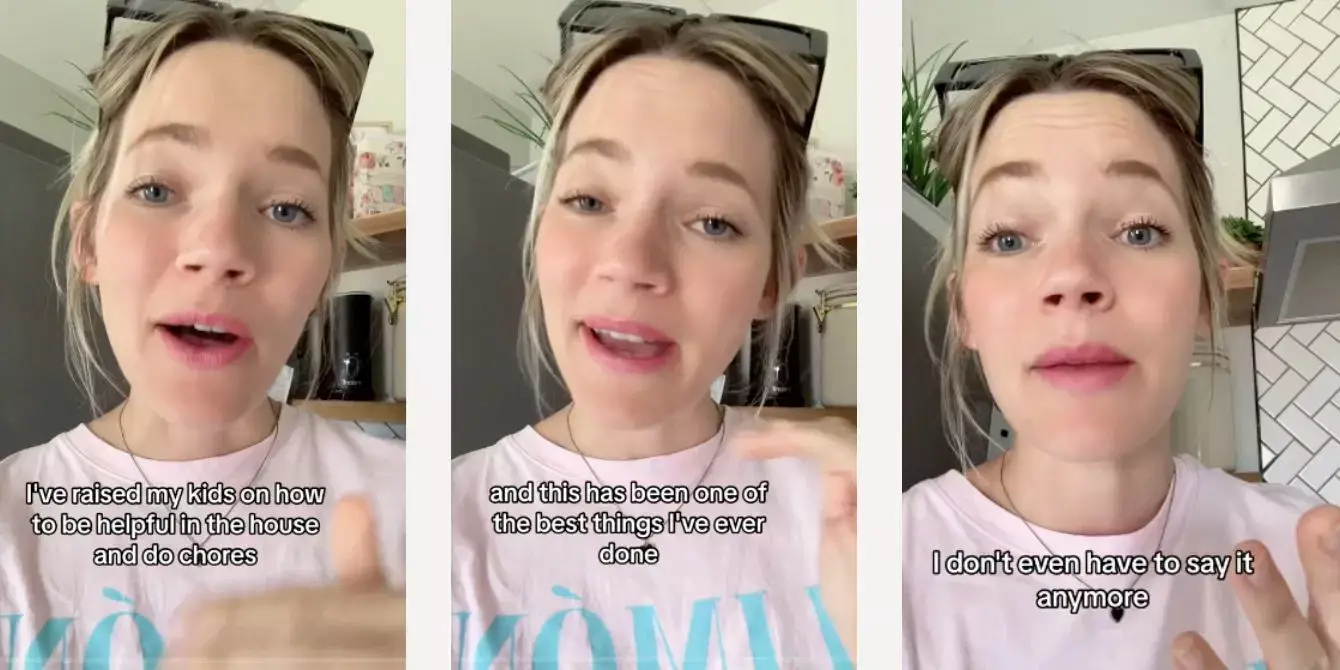In today’s fast-paced world, the notion of assigning chores to children has garnered significant attention, particularly on social media platforms like TikTok. One particular mom, Melissa Lea Hughes, has ignited a conversation about the importance of engaging toddlers in household responsibilities. Sharing her experience in a viral video, she highlights how she successfully encourages her kids to participate in chores such as scraping their uneaten food into the garbage and placing their plates in the sink. This approach stands out not only as practical advice for parents but also as a powerful tool for instilling life skills in young children.
Chores, when introduced at an early age, can create a foundation for responsibility, independence, and self-confidence. Hughes’ methodology exemplifies a broader philosophy that values a structured yet enjoyable approach to household tasks. By emphasizing the positive aspects of chore participation, she suggests that the chaos of family life can transform into a harmonious routine, thus preventing parental burnout and frustration.
As Hughes delves deeper into her experiences, she notes the significance of integrating fun into the learning process. She draws inspiration from the children’s show “Daniel Tiger,” which employs catchy songs to motivate children to complete tasks. This blend of entertainment and education allows kids to associate chores with happiness rather than obligation. By turning mundane activities into enjoyable experiences, Hughes demonstrates a creative way to engage children while teaching them essential life skills.
This playful approach is rooted in developmental psychology, which underscores the importance of making learning relatable and enjoyable for young minds. When chores are framed as games or challenges, children are more likely to participate willingly, transforming a potential battleground of resistance into a playground of cooperation.
Hughes’ technique also emphasizes age-appropriate chores, recognizing that what might be feasible for a child aged two or three will differ significantly from tasks suited for five or six-year-olds. Early on, simple tasks like scraping plates or sorting laundry can instill a sense of accomplishment in toddlers, fostering a willingness to contribute. As children age and develop more skills, chores can evolve into more complex tasks, further enhancing their capabilities.
Moreover, the challenge many parents face is knowing how to provide clear instructions to their children. Instead of vague directives like “clean your room,” breaking down tasks into manageable steps—such as “put your toys in the bin”—can help children understand precisely what is expected of them. This clarity not only aids comprehension but also diminishes feelings of overwhelm that can dissuade children from participating in chores.
While some parents may resort to tangible rewards for task completion, experts advocate for intrinsic motivation by instilling a sense of purpose in chores. Hughes mentions briefly that she doesn’t rely on chore charts, likely believing that organic motivation can be more effective. Children who understand how their contributions impact the household—such as helping their parents maintain a clean home—are often more inclined to contribute voluntarily.
The idea of chores as a bridge to future independence is paramount. Engaging children in household tasks lays the groundwork for successful adulthood, equipping them with practical skills that they will carry into future endeavors. Hughes encourages parents to explain the relevance of chores, highlighting that these experiences teach teamwork, empathy, and responsibility.
The overall impact of Hughes’ approach is evident. By involving her children in household duties, she not only supports their personal development but also strengthens family dynamics. Parents who encourage their children to participate in chores foster a collaborative spirit that benefits everyone involved.
Melissa Lea Hughes’ creative approach to chores offers valuable insights for parents looking to instill essential life skills in their children. By promoting a positive and fun atmosphere around chores, breaking tasks into age-appropriate actions, and fostering intrinsic motivation, parents can create a nurturing environment that empowers kids and transforms everyday household tasks into enriching experiences. Ultimately, this approach fosters not just responsible children but confident and capable individuals prepared to navigate the world as successful adults.

